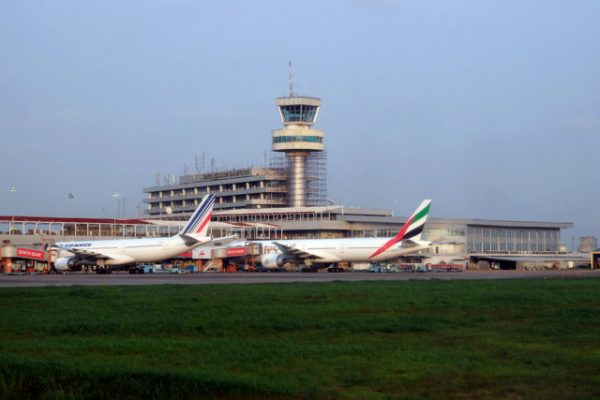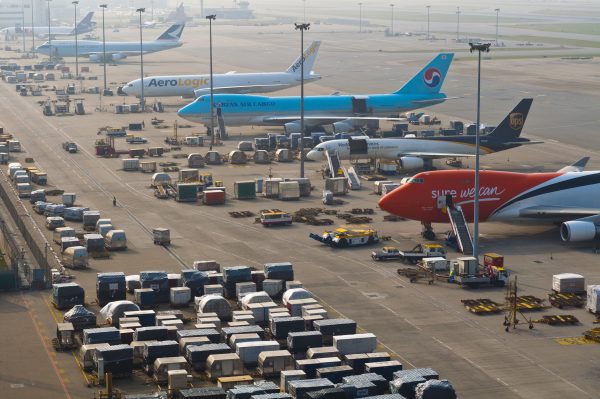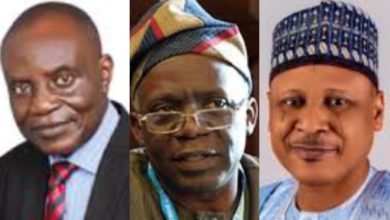Puzzling Facts, Conflicting Figures, Bane Of Aviation Industry
 Conflicting figures are fast becoming the in-thing in local air travel business, and in-between is the credibility gap.
Conflicting figures are fast becoming the in-thing in local air travel business, and in-between is the credibility gap.
It is often said in the telecommunications sector that data is life. In aviation, life abounds in facts and figures. In fact, a suitable maxim is ‘show me your figures and I will forecast the future’.Forecasting, via facts and figures, is a daily exercise in air travel – from flight planning, to weather, passenger traffic, requisite capacity and ground equipment, and revenue estimates. The more reliable the figures, the better the predictions.
Indeed, more dominant organisations in the global aviation community don’t joke with figures. The International Air Transport Association (IATA), for instance, issues statistics on monthly and annual basis, detailing performances and projections of both passenger and cargo traffic demands for all regions.
IATA, the global clearing house for 290 airlines in the world, in December projected that all regions, except Africa, are expected to report profits in 2018 and 2019, with the global net profit of N12.8 trillion ($35.5 billion) this year. The body estimated another bleak year for the African region, and fourth year on the bounce, putting the estimated loss at N108 billion ($300 million).
Nigeria, one of the leading aviation countries in the red-flag region, has none of such figures or projection paraded by IATA. What it has are multiple statistics that have made precise forecast or growth projection unrealistic.
Controversial facts, figures
Already smacked in controversies are the figures for 2018. While the body of travel agencies, the downstream sector of the industry, has declared N525 billion ($1.5 billion) ticket sales for 2018, suggesting a comparative improvement in traffic, Global Distribution Service (GDS) providers, the middle man between the airlines and travel agencies, have shown another five per cent decline in traffic with implications for revenue. Indeed, the disparity in figures is not new to the air travel sub-sector. However, the problem puts the accuracy of figures, revenue estimates, growth projections and potential investments at risk.
The Nigerian Civil Aviation Authority (NCAA), which on behalf of other agencies collects five per cent Passenger Sales Charge (PSC) on each ticket sold and Cargo Sales Charge (CSC) on freights, estimated 14.17 million passengers in 2018.Compared to 2017, where 11.3 million passengers travelled, the 2018 figures represent a 20.8 per cent traffic upsurge, though contrary to the five per cent drop in traffic recorded by the GDS for the same year.According to the NCAA, 34 airlines on the international routes operated 15,645 flights and flew 4,079,078 passengers during 2018. Meanwhile, nine domestic airlines operated a total of 59,818 flights and airlifted 10,092,648 passengers across the country.
When silence is not golden
The traffic upsurge notwithstanding, NCAA has kept mum on the revenue generated in 2018. Unlike last year when the Director-General of NCAA, Capt. Mukhtar Usman, had at the beginning of a new year called a world press conference to proudly declare previous year’s performance and revenue earned, the body is yet to avail a comprehensive industry review for 2018.The choice of keeping it secret this time may not be unconnected with the backlash of the 2016 and 2017’s full disclosure, which immediately drew doubts and alleged under disclosure of revenue.
Initial bone of contention was the disparity in figures released by the NCAA and that coming from the Federal Airports Authority of Nigeria (FAAN). To mitigate the embarrassment and shush critics, the NCAA went on to avail harmonised figures for the industry. But it further brought the agency under spotlight.The apex regulatory body disclosed a total number of 15 million international and local passengers in 2016, with a total of N422.4 billion in ticket sales. 2017 recorded 14.1 million passengers with N505 billion in ticket sales.
Stakeholders, however, faulted the new revenue estimates, alleging a shortfall in excess of N400 billion in the two years under review, with attendant shortchange of the mandatory five per cent charges that goes to the five regulatory agencies from ticket sales. NCAA denied the allegation, pledging to stand by its harmonized figures. But silence on 2018 revenue estimates may not be golden after all, and may not even be the solution amid conflicting figures coming from other stakeholders.
Two sides of one reality
President of Sabre Network West Africa, a leading GDS provider, Gbenga Olowo, said a total of 3.6 million international passengers, contrary to NCAA’s four million, actually travelled in 2018. Olowo noted that the 2018 estimates again confirmed the five per cent decline in traffic, which had been consistent since 2015. Olowo, who is also the President of Aviation Safety Round Table Initiative (ASRTI), a think-tank group of the Nigerian aviation industry, said the last time the air travel sector recorded growth was in 2014, with agency booking volume in excess of four million foreign passengers.
“But since 2015 to 2018 has been continuous decline. 2015 recorded 3.79 million, 2016 had 3.99, 2017 was 3.78 million and 2018 was 3.6 million, which amounts to five per cent decline,” he said. Olowo explained that the industry continued to record decline due to “credibility questions and erosion of confidence” on the part of foreign carriers, because of the shady activities of many travel agencies. He reiterated that growth is essential. Hence, the apex regulator and other operators must refocus on deepening confidence in the air travel business to attract better patronage.
However, President of the National Association of Nigerian Travel Agencies (NANTA), Bernard Bankole, faulted the traffic decline claim, saying it contradicts the sales earning made by his members and revenue figures released by the International Air Transport Association (IATA). Bankole said: “If the industry that made $1.4 billion (N490 billion) in 2017 ticket sales turns in $1.5 billion in ticket sales (N525 billion) in 2018, it means we have made progress and not decline as they (GDS) are claiming.”
He said, indeed, there were challenges in the industry in 2014, with stuck funds forcing foreign carriers to quit operations in Nigeria. But in the following years, the market rebound with many of the challenges already forgotten.
“What we must know, to avoid misconceptions is that there is a difference between tickets issued and segment. Those speaking from the segment are the GDSs. The issue today is that airlines (foreign) too are looking for means to cut operational costs. So, some of them have stopped using GDSs but other means that are cheaper. “That way, the global figures of GDSs is going down, which shows signs of decline in the market, but not really the case in terms of ticket issued. A decline in segments of GDS does not mean decline in market growth,” he said. Bankole added that the good thing is that the travel agencies’ figures are from the source — IATA, which keeps records of the total ticket sold globally.
“It is their duty to release such information to us but it is what determines the size of the market. Unfortunately, NCAA and the Federal Airports Authority of Nigeria (FAAN) do not work in sync with IATA to be able to harmonise industry data.
Time to reconcile
“But we cannot continue to have disparity in figures as a nation. If NANTA has sold X number of tickets, let us assume that 10 per cent of the tickets were not used, then there should not be so wide a difference in our figures and those coming from NCAA and FAAN,” Bankole said. Secretary General of the ASRTI, Group Capt. John Ojikutu (rtd), said the disparity in figures portends serious consequence on the Internally Generated Revenue (IGR) of the sector, and “NCAA should be held responsible for the lack of sufficient oversight on the earnings of the operators and agencies in the sector.”
“I knew that since 2016. My take, which I suggested not too long ago, is for the government to audit the earnings of all its agencies including the NCAA. I have discovered that beyond the losses in NCAA, government is losing over N200 billion within its agencies in the sector through the manipulation of the various figures that are not adding up even with the so-called harmonization of their respective figures.
“One major point in all these is that the government seems not to know the actual IGR or the worth of its agencies, especially the airports we are considering now for concession. What values are we putting on the airports and what is their worth in the global market? What the agencies are declaring are by far from the worth of their expected revenue,” Ojikutu alleged.
By Wole Oyebade






